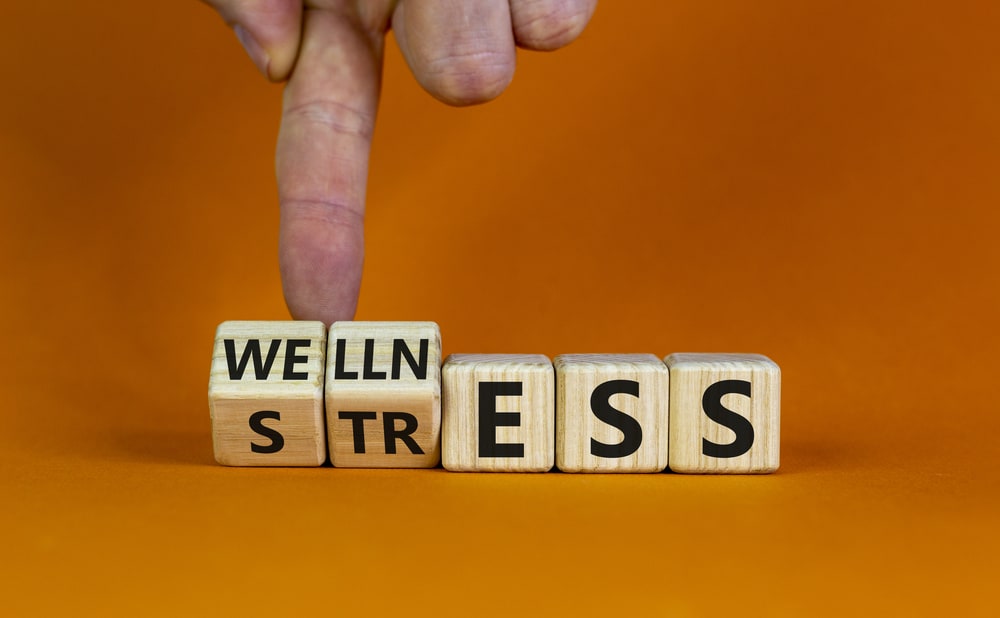How do you manage stress in your personal life?
Managing stress in personal life is crucial for maintaining mental well-being and overall health. Here are some effective strategies to help you handle stress and create a more balanced lifestyle:
1. Identify the Source of Stress
- Self-Reflection: Take time to reflect on what is causing your stress. It could be work pressure, relationship issues, financial concerns, or health problems.
- Write it Down: Keeping a journal of stressful events can help you pinpoint patterns and triggers, making it easier to address them.
2. Practice Mindfulness and Meditation
- Mindful Breathing: Simple breathing exercises, such as deep breathing or the 4-7-8 technique (inhale for 4 seconds, hold for 7 seconds, exhale for 8 seconds), can help calm your mind and body.
- Meditation: Regular meditation practice can help reduce stress by promoting relaxation and increasing your awareness of the present moment. Apps like Headspace, Calm, or Insight Timer can guide you through meditations.
- Mindful Activities: Engage in mindful activities like yoga, tai chi, or even mindful walking to help you stay grounded.
3. Maintain a Healthy Lifestyle
- Regular Exercise: Physical activity is one of the best ways to relieve stress. Exercise releases endorphins, which are natural mood lifters. Even a short walk, run, or yoga session can significantly reduce stress.
- Balanced Diet: Eating a nutritious, balanced diet helps your body cope with stress better. Incorporate foods rich in omega-3 fatty acids, vitamins, and minerals that support mental health, such as leafy greens, nuts, and fish.
- Adequate Sleep: Lack of sleep can exacerbate stress. Aim for 7-9 hours of quality sleep each night. Establish a relaxing bedtime routine and maintain a consistent sleep schedule.
4. Set Boundaries and Learn to Say No
- Prioritize Your Time: Understand your limits and avoid taking on more tasks or responsibilities than you can handle. It’s okay to say no when you feel overwhelmed.
- Manage Expectations: Communicate clearly with others about what you can and cannot do. Setting realistic expectations can help reduce unnecessary stress.
5. Practice Time Management
- Plan Your Day: Organize your tasks and set a daily schedule to avoid feeling overwhelmed. Use planners, to-do lists, or apps to keep track of your tasks and appointments.
- Break Tasks into Smaller Steps: Large tasks can be daunting. Break them into smaller, more manageable steps to make them less overwhelming.
- Avoid Procrastination: Procrastinating can increase stress and anxiety. Try tackling the most challenging tasks first when your energy and focus are highest.
6. Develop Healthy Coping Mechanisms
- Hobbies and Interests: Engage in activities that you enjoy, such as reading, gardening, painting, or playing a musical instrument. These activities can serve as a creative outlet and help you relax.
- Practice Relaxation Techniques: Techniques such as progressive muscle relaxation, guided imagery, or deep breathing exercises can help calm your mind and body.
- Limit Caffeine and Sugar: High levels of caffeine and sugar can increase anxiety and stress. Reduce your intake of coffee, energy drinks, and sugary snacks.
7. Build a Support System
- Reach Out to Loved Ones: Talking to friends or family members about your worries can be a great way to relieve stress. They can provide emotional support, a different perspective, or practical solutions.
- Seek Professional Help: If stress becomes overwhelming, consider speaking with a therapist or counselor. They can help you develop effective strategies to manage stress.
- Join Support Groups: Connecting with people who are going through similar experiences can provide a sense of community and shared understanding.
8. Practice Gratitude and Positive Thinking
- Keep a Gratitude Journal: Writing down things you are grateful for each day can help shift your focus from stress to positivity and improve your overall mood.
- Focus on the Positive: Challenge negative thoughts and try to reframe them in a more positive light. Practice self-compassion and avoid being overly critical of yourself.
9. Engage in Physical Relaxation
- Massage and Acupressure: Regular massages or self-acupressure can help reduce tension and promote relaxation.
- Take Warm Baths: A warm bath with essential oils like lavender can help soothe your muscles and calm your mind.
- Stretching: Incorporate stretching exercises to relieve muscle tension, especially if you spend long hours sitting or working at a desk.
10. Create a Healthy Work-Life Balance
- Schedule Breaks: Regular short breaks during work or study sessions can help prevent burnout and reduce stress. Use techniques like the Pomodoro method (25 minutes of focused work followed by a 5-minute break).
- Unplug from Technology: Limit your screen time, especially before bed. Take time away from social media and digital devices to rest your mind.
11. Spend Time in Nature
- Nature Walks: Spending time outdoors, whether walking in a park, hiking, or sitting by a lake, can help reduce stress levels and improve your mood.
- Gardening: Engaging in gardening can be a relaxing activity that connects you with nature and provides a sense of accomplishment.
12. Practice Acceptance
- Focus on What You Can Control: Let go of things you cannot change and focus on what you can control. This shift in mindset can reduce feelings of helplessness and decrease stress.
- Accept Imperfections: Understand that it’s okay to make mistakes. Perfectionism can lead to unnecessary stress. Embrace your flaws and learn from them.
In Summary:
Managing stress in your personal life involves a combination of healthy habits, mindfulness, support, and effective time management. By taking proactive steps to identify stressors, prioritize self-care, and seek help when needed, you can develop resilience and maintain a balanced, fulfilling life. Remember, it’s a continuous process, and finding what works best for you may take time. Be patient with yourself and make small, consistent changes for lasting improvement.

